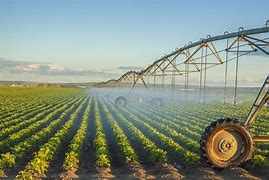 Farmers, farmworkers and everyone who works outside should be cautious about their exposure to the ultraviolet rays (UV) from the sun. Skin cancer is the most common type of cancer in the United States. Incidence of skin cancer can increase with repeated exposure to the sun which causes damaging changes to the skin. The two types of ultraviolet rays most likely to damage a person’s skin and increase the risk for developing skin cancer are Ultraviolet A (UVA) and Ultraviolet B (UVB).
Farmers, farmworkers and everyone who works outside should be cautious about their exposure to the ultraviolet rays (UV) from the sun. Skin cancer is the most common type of cancer in the United States. Incidence of skin cancer can increase with repeated exposure to the sun which causes damaging changes to the skin. The two types of ultraviolet rays most likely to damage a person’s skin and increase the risk for developing skin cancer are Ultraviolet A (UVA) and Ultraviolet B (UVB).
No one is immune to the sun’s UV rays; however, some skin types are more susceptible than others. People with blonde or red hair, fair skin, or freckles tend to get sunburned more quickly than others and should be even more vigilant about protecting themselves from the sun. However, persons with darker toned skin or those who tan easily must still be concerned. Skin damage builds up over the years, and once the damage has occurred, it cannot be reversed.
Risks of Sun Exposure
One of the main health concerns of sun exposure is skin cancer. In the United States, one in five people will develop skin cancer. Contact your physician if you notice a difference in your skin or changes in moles regarding asymmetry, border, irregularities, color, or size.
The three main types of skin cancer are basal, squamous, and melanoma. Basal and squamous cancers are typically associated with long-term exposure to the sun but are seldom fatal. Melanoma can be fatal if not diagnosed and treated early and can affect people of all ages. When examining your skin for melanoma, look for changes in the size, shape, and color of existing moles and discolored patches of skin that may start small and grow.
Recommendations
The following recommendations can reduce an agricultural producer’s risk of sun exposure, skin cancer, and other sun-induced conditions:
Sun Intensity – Exposure to harmful ultraviolet rays is most intense between 10:00 a.m. and 4:00 p.m. When possible, avoid working in direct sunlight during this time. If you must be in the sun during these hours, take shade breaks to reduce exposure, drink plenty of water, and reapply sunscreen at least every two hours.
Sunscreen – Sunscreens have one or more chemicals that absorb or disperse ultraviolet rays. Sun protection factor (SPF) is a numerical rating that indicates a specific amount of protection. You should wear a sunscreen with a minimum SPF of 15, but those with fair skin should use an SPF of 30 or higher. Due to exposure to water, weather, and perspiration, you should reapply sunscreen at least every two hours.
Clothing – Long-sleeved shirts and long pants provide protection from the sun’s rays. Darker clothing with a tight weave provides more protection from the sun than light-colored, loose-fitting clothing. Special SPF or UV-resistant clothing is available to reduce exposing your skin to the UV rays.
Hats – When it comes to sun protection, not all hats are created equal. You should wear a wide-brimmed (minimum of three inches wide) hat with flaps or drapes to provide sun protection for your eyes, ears, and neck.
Sunglasses – To reduce the risk of eye damage from the sun, wear sunglasses with UV protection. When purchasing UV-blocking sunglasses, look for labels that indicate “UV absorption” or “meets ANSI UV requirements.” Long-term exposure of your eyes to the sun could cause pterygium (thickening of the outer coating of the eye), cataracts, and possibly macular degeneration.
Medications – Check both your prescription and over-the-counter medications concerning whether the medication creates sensitivity to sunlight and discuss options with your physician.
Diseases – Sun exposure can be problematic for people with certain types of diseases or health conditions. Discuss your medical condition and sun exposure with your physician.
Citations
Jepsen, S. D. & Suchey, J. (2015) Sun exposure (Protect your skin). Ohio State University Extension. Retrieved from http://ohioline.osu.edu/factsheet/aex-79018.
Schwab, C. & Stone, J. (2002) Remember sun safety in the field. Iowa State University Extension and Outreach. Retrieved from https://store.extension.iastate.edu/ItemDetail.aspx?ProductID=4993.
UV radiation. (2010). Centers for Disease Control and Prevention. Retrieved from http://www.cdc.gov/niosh/topics/uvradiation/.
Reviewed and Summarized by:
Linda M. Fetzer, Pennsylvania State University – lmf8@psu.edu
Karen Funkenbusch – University of Missouri – funkenbuschk@missouri.edu
Dennis J. Murphy, Pennsylvania State University (Has since retired)
Charles V. Schwab, Iowa State University – cvschwab@iastate.edu
Aaron M. Yoder, University of Nebraska Medical Center – aaron.yoder@unmc.edu


